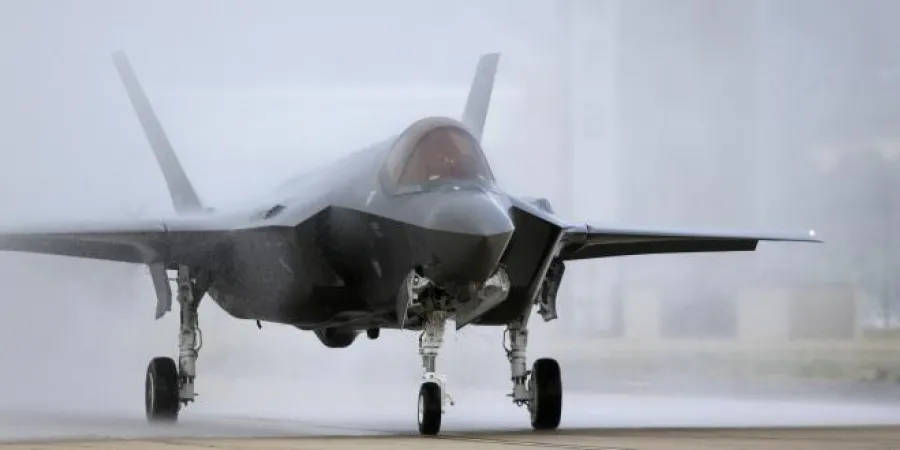US Navy Orders 50 F-35 Fighters for Allied Military Forces
The Navy reportedly asked Lockheed Martin to build F-35 stealth fighter jets for the UK, Italy, Australia, the Netherlands, Turkey, Norway and other unnamed foreign military sales customers
Dan Arkin
| 02/08/2017
The US Navy asked Lockheed Martin to build 50 F-35 stealth fighter jets for US allies under terms of a $3.7 million order.
Officials of the Naval Air Systems Command are asking the Lockheed Martin Aeronautics segment to build one F-35B for the United Kingdom; one F-35A for Italy; eight F-35As for Australia; eight F-35As for the Netherlands; four F-35As for Turkey; six F-35As for Norway; and 22 F-35As for unnamed foreign military sales customers.
The order includes mission equipment and chase-maintenance for the militaries of these nations, as well as for the US Air Force, Marine Corps, and Navy.
Air Force Chief Scientist Gregory Zacharias told Military Aerospace that an F-35 computer system, Autonomic Logistics Information System (ALIS), uses early applications of artificial intelligence that help computers make assessments, go through checklists, organize information and make some decisions by themselves – without needing human intervention.
The F-35's avionics includes the Northrop Grumman AN/APG-81 active electrically scanned array (AESA) radar; Lockheed Martin AAQ-40 electro-optical targeting system (EOTS); Northrop Grumman AN/AAQ-37 distributed aperture system (DAS) missile warning system; BAE Systems AN/ASQ-239 electronic warfare (EW) suite; and Northrop Grumman AN/ASQ-242 communications and navigation system.
F-35 pilots wear a helmet-mounted display that enables them simply to look at a target to shoot weapons. The orientation of the pilot's head provides missile seeker heads with targeting information.
[Source: Military Aerospace]
The Navy reportedly asked Lockheed Martin to build F-35 stealth fighter jets for the UK, Italy, Australia, the Netherlands, Turkey, Norway and other unnamed foreign military sales customers
The US Navy asked Lockheed Martin to build 50 F-35 stealth fighter jets for US allies under terms of a $3.7 million order.
Officials of the Naval Air Systems Command are asking the Lockheed Martin Aeronautics segment to build one F-35B for the United Kingdom; one F-35A for Italy; eight F-35As for Australia; eight F-35As for the Netherlands; four F-35As for Turkey; six F-35As for Norway; and 22 F-35As for unnamed foreign military sales customers.
The order includes mission equipment and chase-maintenance for the militaries of these nations, as well as for the US Air Force, Marine Corps, and Navy.
Air Force Chief Scientist Gregory Zacharias told Military Aerospace that an F-35 computer system, Autonomic Logistics Information System (ALIS), uses early applications of artificial intelligence that help computers make assessments, go through checklists, organize information and make some decisions by themselves – without needing human intervention.
The F-35's avionics includes the Northrop Grumman AN/APG-81 active electrically scanned array (AESA) radar; Lockheed Martin AAQ-40 electro-optical targeting system (EOTS); Northrop Grumman AN/AAQ-37 distributed aperture system (DAS) missile warning system; BAE Systems AN/ASQ-239 electronic warfare (EW) suite; and Northrop Grumman AN/ASQ-242 communications and navigation system.
F-35 pilots wear a helmet-mounted display that enables them simply to look at a target to shoot weapons. The orientation of the pilot's head provides missile seeker heads with targeting information.
[Source: Military Aerospace]



